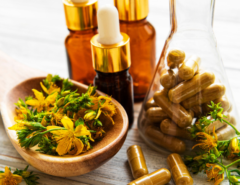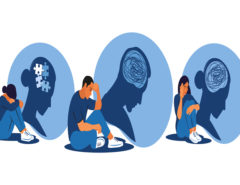Taking at least one medicine is a routine part of many people’s day. In fact, some people might even take many medicines every day. It is a good idea to keep an up-to-date list of all of the medicines you take. Having this important information in one place will save you time and confusion when it comes to keeping track of your medicines. There are many medicine trackers available. You may have one from your health care provider or pharmacy. If not, you can download the Maryland Poison Center’s (MPC) easy-to-use medicine tracker.
Let’s review some tips to help you make the most of your medicine tracker:
All routine and as-needed medicines should be recorded on the tracker. This includes prescriptions, over-the-counter (OTC) medicines, vitamins, and supplements. Medicines can be in the form of a pill, patch, cream, or liquid.
Note which medicines must be taken at a specific time of the day, such as in the morning or at night. Discuss with your health care provider or pharmacist what time of day you should take a medicine.
Record which medicines should be taken with food. You can find this information on the medicine label or by asking your pharmacist.
Know why you are taking a medicine. Some medicines have multiple uses. Take charge of your health and know why you are taking a medicine and what it does for you. This information can be helpful if you see multiple doctors for different conditions.
Medicine comes in all shapes and sizes. If the shape, color, or size of your medicine changes from one refill to the next, ask your pharmacist. Some pharmacies will explain this change on the label. There may have been a change in the brand of medicine you received, but it never hurts to double check that you have the right medicine.
Discuss with your health care provider or pharmacist how long you should take a medicine. You can stop taking some medicines when you feel better, while other medicines should continue to be taken even when you feel better. Always check with your health care provider before stopping a medicine.
Take the tracker to all medical appointments. Instead of writing the list of medicines you take each time you visit, you can ask the medical office to make a copy of your tracker.
Include your pharmacy’s name and phone number. If possible, get all of your prescriptions from the same pharmacy. This will help the pharmacist better detect possible drug interactions before you pick up a new medicine.
When in doubt, ask your health care provider, pharmacist, or a poison expert.
Additional Medicine Tracking Tips:
When you have short-term illness, such as a fever or cold or are recovering from an injury or surgery, it can be helpful to track the time when a medicine is taken. For example, if someone is running a fever and needs to take a medicine every few hours. The times that the medicine was or needs to be taken should be recorded on a piece of paper that’s kept near the medicine or on your phone for easy reference. This is also important when taking pain medicines. If a person has multiple caregivers, make sure everyone knows to record or communicate when a medicine is given. This can help make sure the person doesn’t get the medicine too often or in the wrong amount.
The more medicines a person takes, the more risk there is for mistakes. Taking medicine in the wrong amount or at the wrong time can cause unwanted effects. Before starting any new medicine, talk to your health care provider or pharmacist to make sure it won’t interact with your other medicine(s).
Lastly, don’t keep unused or expired medicines in your home. If your health care provider or pharmacist advises you to stop taking a medicine, dispose of it as soon as you can. A list of permanent drop-off locations is available here. The Drug Enforcement Agency (DEA) also offers two Take Back Days each year to help people safely dispose of their medications, usually in October and April. Simple instructions for home disposal are available here.
If you can’t remember whether you took a medicine, call the poison center first. We can help you determine if it is safe to have a double dose or if it is better to skip it and wait for the next dose. If a dosing error happens, or if someone takes a medicine that isn’t theirs, contact the MPC at 1-800-222-1222 right away for help. Do not wait for symptoms to appear. We are a free and confidential service here to help anytime, day or night.




Leave a Reply